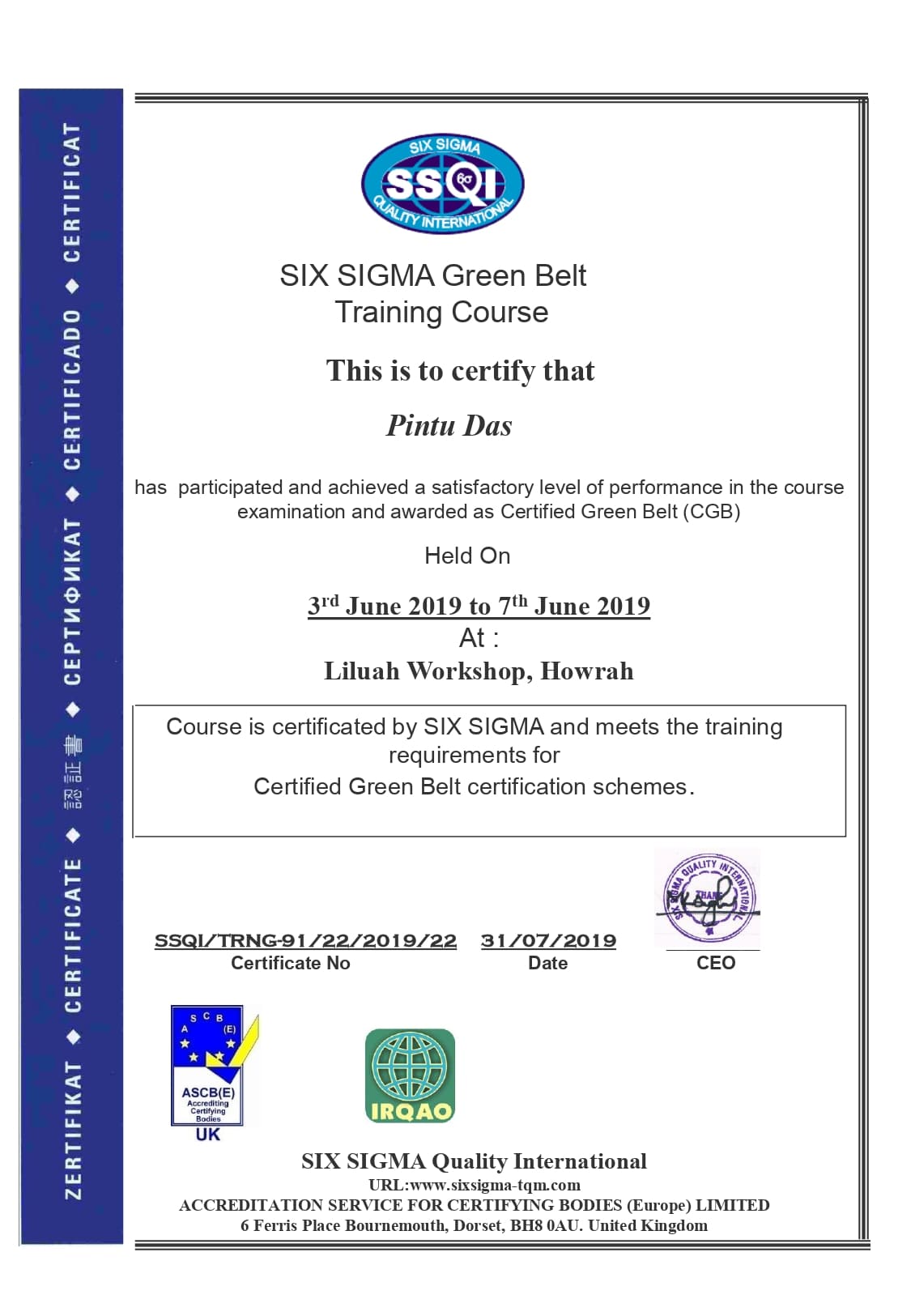Six Sigma White Belt Training
₹10,000.00 Original price was: ₹10,000.00.₹5,000.00Current price is: ₹5,000.00.
The solutions offered by us cover areas like ISO 9001:2008, ISO 10002:2004, ISO 13485:2003, ISO 14001:2004 Certification, ISO/TS 16949:2009 Certification, ISO 17025 Certification, OHSAS 18001:2007 Certification, ISO 20000-1:2005 Certification, ISO 20252:2006 Market Research, ISO 22000 Certification, ISO 27001:2005 Certification, ISO 29001:2007 Oil and Gas, SQC/SPC Certifications and HACCP.
Presently, some of the industries for whom we provide certifications services include Service Industries, Engineering, Pharmaceutical, Chemical, Food, Education, Hospital, Banking & Software and others.
Six Sigma White Belt training is an introductory level course designed to familiarize participants with the basic concepts, methodologies, and tools of Six Sigma. While it varies between organizations and training providers, a typical Six Sigma White Belt training covers the following topics:
- Introduction to Six Sigma: Overview of the history, principles, and benefits of Six Sigma.
- DMAIC Methodology: Introduction to the Define-Measure-Analyze-Improve-Control framework, which is the core methodology of Six Sigma for process improvement.
- Roles and Responsibilities: Explanation of the different roles within a Six Sigma project team, including champions, sponsors, Black Belts, Green Belts, and Yellow Belts.
- Basic Statistics: Basic statistical concepts and tools used in Six Sigma, such as mean, median, mode, standard deviation, histograms, and control charts.
- Problem-Solving Tools: Introduction to various problem-solving tools commonly used in Six Sigma, such as fishbone diagrams, Pareto charts, and process maps.
- Process Improvement Techniques: Overview of common process improvement techniques, including process mapping, root cause analysis, and mistake-proofing.
- Continuous Improvement Culture: Emphasis on the importance of fostering a culture of continuous improvement within an organization.
The Six Sigma White Belt training provides participants with a foundational understanding of Six Sigma principles and prepares them for further training and certification at higher belt levels (Yellow Belt, Green Belt, Black Belt, and Master Black Belt) if they choose to pursue it.


Reviews
There are no reviews yet.